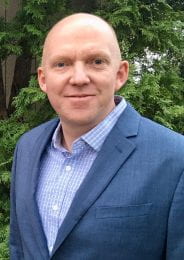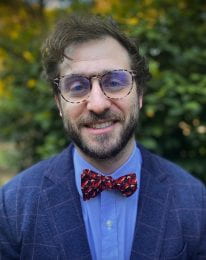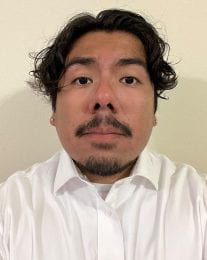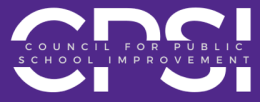Category: Fall 2023
Welcome to Another School Year!
 Welcome to a new school year and to the Fall 2023 issue of Rural Crossroads: CONNECTIONS—the Rural Education Center’s newsletter designed to amplify rural accomplishments, future projects, and your concerns.
Welcome to a new school year and to the Fall 2023 issue of Rural Crossroads: CONNECTIONS—the Rural Education Center’s newsletter designed to amplify rural accomplishments, future projects, and your concerns.
In this issue, we will give you an update on several grants the REC has received—and what it means for your school district. (Already this semester, we’ve received more than $4 million in project funding, with the majority of that funding going toward equipment and resources for rural schools.
Speaking of grants, we’re going to start a new project which we think you’ll find valuable. We will be providing grant-writing support for rural schools to achieve some of their goals. For example, do you have a class that needs a special resource? Or funds for some technology? We’re interested in hearing how grant funding might help make those happen. Read the news item below to get details!
We also introduce you to our growing staff at the REC. We’re fortunate to have several talented staff members who are eager to help rural schools succeed!
And there’s plenty more that you can read all about. Hope you enjoy this issue of the newsletter, and don’t hesitate to reach out to us!
REC Director Participates in US Dept. of Education Roundtable
Spencer Clark, director of the Rural Education Center, recently participated in a roundtable discussion as part of U.S. Secretary of Education Miguel Cardona’s Back to School Bus Tour 2023: Raise the Bar.
 Clark was invited to the roundtable of state and local leaders, held in partnership with the Kansas Department of Education on Sept. 5, to highlight the work of the REC. The session was designed for participants to share highlights of their projects and discuss how the U.S. Department of Education can support their work. The event was held at the Kansas Association of School Boards headquarters in Topeka.
Clark was invited to the roundtable of state and local leaders, held in partnership with the Kansas Department of Education on Sept. 5, to highlight the work of the REC. The session was designed for participants to share highlights of their projects and discuss how the U.S. Department of Education can support their work. The event was held at the Kansas Association of School Boards headquarters in Topeka.
In addition to the Kansas visit, Secretary Cardona’s multi-state tour featured stops in Missouri, Illinois, Wisconsin and Minnesota.
The REC has gained recognition for its various projects. These include:
- Grants totaling more than $10 million so far, including receiving funding for a $4 million grant last month.
- Technology training for teachers and resources, such as double robots, drones, and virtual reality equipment.
- Its development of a Rural Professional Development Schools network that now includes 15 rural districts from across the state.
- Sponsoring two successful summer STEM camps:
- The LEAPES (Learning, Exploration, and Application for Prospective Engineering Students) camp trained more than 50 educators in rural areas and provided camp opportunities in the STEM areas of Science, Technology, Engineering and Math for nearly 500 middle and high school students.
- The Virtual STEAM Academy featured topics in Science, Technology, Engineering, Arts, and Math. Nearly 360 students participated, including nine Kansas sites and eight international sites.
Clark is a professor in the College’s Department of Curriculum and Instruction.
Our RPDS Network is Growing
We’re excited to announce that we now have 15 school districts who have joined us to be part of our Rural Professional Development Schools network. These districts are our go-to districts for various projects, including grants.
Check out the map to see how the REC has Kansas covered!

How About Some FREE Help with Grant Writing?
Have you wanted to write a small grant proposal but don’t know where to start? Or maybe you don’t have time to add one more project to your day? Maybe we can help!
The REC is creating a grant-writing team for our rural school partners—beginning with our RPDS network. As our staff grows (see the item in this issue), we want to begin a new project—providing grant-writing assistance to your school district!
While receiving multi-million-dollar grants is amazing, we also know that much smaller individual grants can have a tremendous impact—on a classroom, a teacher’s project, or a building. We’d love to be able to fund all your ideas ourselves, but submitting a grant is the next best thing!
To get started, we’re encouraging the 15 partners in our RPDS network to each send us a “wish list” to provide an area of need for your school (and a funding agent, if you know of one). Then we will select one or two each semester to help write. These grants will probably be in the $500 to $2000 range for now, as we begin this project. As our team gets more comfortable writing grants, we hope to increase the number of grants we work on each year.
We’re excited about this project—we think it will help add some needed items in rural classrooms.
To be considered, email us at ruraled@ksu.edu with GRANT in the subject line. Include the following:
- Contact name, email address
- School and district
- Two to three sentences about what you would use the funds for and why
- Suggested funding agent (if you know of one)
- Estimated amount you’re seeking
- Any other helpful information
We’ll make our selections quickly and let you know as soon as possible whether your project has been chosen.
Get to Know Our Newest REC Team Members
Ennis Rios started this summer as the program coordinator for the REC.

A Kansas City native, he served in the US Navy for 15 years as an Information Systems Technician specializing in shipboard radio and data communications for the first half of his career before moving into the Naval Special Warfare community, where he specialized in mobile communications. Upon leaving the Navy in 2015, he attended Texas A&M University, earning his undergraduate degree in Geographic Information Science and Technology and a Master’s in Water Management and Hydrological Science.
In this new role with the REC, he is excited to leverage his academic and professional background to disseminate scientific knowledge and inspire the next generation of scientists in communities across Kansas.

Marzieh Ebrahimi is a skilled research assistant at Kansas State University, pursuing her PhD program in Curriculum and Instruction, with her main research focus on implementing technology in education. She is mainly involved in doing some research related to VR/AR and their adoption in education system. With her vast experience in this field, she has developed a deep understanding of how technology can be used to improve learning outcomes for students and educators alike. Currently, in collaboration with Rural Education Center, she is working on LEAPES and SPECA Projects.
Marzieh has a Bachelor’s degree in English Literature and two Master’s degrees in Teaching English as a Second Language (TEFL) from Azad university, and Teaching Persian to non-Persian Speakers from Ferdowsi University in Iran, which has equipped her with the theoretical and practical knowledge to work in this field.
Marzieh is an excellent team player and has collaborated with other researchers to publish research papers and present at national and international conferences. Her dedication to her work has earned her recognition in the academic community. With her passion for education and technology, Marzieh is committed to making a positive impact on the lives of students and teachers through her research.
Marzieh Ebrahimi undertakes an important responsibility as a co-president within EGSO (Education Graduate Student Organization), actively participating in the joint leadership and guidance of the organization. Additionally, she facilitates various projects aimed at augmenting the academic and professional development of its members.
As a graduate assistant, Marzieh will provide assistance for various REC projects.
 Nooshin Darvishinia is a doctoral candidate in Curriculum and Instruction at Kansas State University, focusing on the dynamic intersection of technology and education. She also focuses on equity in educational contexts. A winner of a literary contest, Nooshin is deeply interested in the role of storytelling in both teaching and learning. This interest has informed her 12-year career as an English Language instructor. As a Graduate Research Assistant at the Rural Education Center (REC), she has been working on LEAPES and SOARING projects, aiming at advancing education through innovative applications of technology in rural contexts. Nooshin holds a master’s degree in teaching English as a Foreign Language (TEFL), and a bachelor’s degree in English Literature.
Nooshin Darvishinia is a doctoral candidate in Curriculum and Instruction at Kansas State University, focusing on the dynamic intersection of technology and education. She also focuses on equity in educational contexts. A winner of a literary contest, Nooshin is deeply interested in the role of storytelling in both teaching and learning. This interest has informed her 12-year career as an English Language instructor. As a Graduate Research Assistant at the Rural Education Center (REC), she has been working on LEAPES and SOARING projects, aiming at advancing education through innovative applications of technology in rural contexts. Nooshin holds a master’s degree in teaching English as a Foreign Language (TEFL), and a bachelor’s degree in English Literature.
In addition to co-authoring a book chapter, she has served as a reviewer for several peer-reviewed journals. Nooshin has also presented her work at numerous national and international conferences. Notably, she spoke at the International Conference on Educational Sciences, Psychology & Humanities in Belgium and the National Conference on Language, Literature, and Translation in Education at Maybod University. In March 2023, she presented her research on Teachers’ Instructional Approaches Toward Telepresence Robots in Education at the Critical Questions in Education Conference in San Diego, California. Her recent publications include a paper on Artificial Intelligence in education.
In her other role as the Vice President of the Education Graduate Student Organization (EGSO), Nooshin is committed to fostering a vibrant and supportive community for graduate students in the field of education.
As a part of the REC, she is involved in various projects, including overseeing the REC’s social media.
 Dillon Simmons specializes in online learning experiences and related educational technologies. As a research coordinator for the Rural Education Center, Dillon leverages several years of Secondary and Collegiate teaching experience to empower teachers in rural schools with resources and training they can use to provide new quality STEM learning experiences to their students.
Dillon Simmons specializes in online learning experiences and related educational technologies. As a research coordinator for the Rural Education Center, Dillon leverages several years of Secondary and Collegiate teaching experience to empower teachers in rural schools with resources and training they can use to provide new quality STEM learning experiences to their students.
Dr. Simmons’s doctorate focused on expanding quality online learning opportunities to support more diverse learning styles. His master’s emphasized reinforcing culturally relevant and responsive content to build literacy skills. At the REC, he is Research Coordinator and an in-house STEM expert.
 Hector Ramos is our undergraduate student-worker, who usually can be found in the REC office, BH 244, keeping us all organized. He began working in the REC office at the beginning of the fall semester.
Hector Ramos is our undergraduate student-worker, who usually can be found in the REC office, BH 244, keeping us all organized. He began working in the REC office at the beginning of the fall semester.
Hector, originally from Garden City, is a second semester Mechanical Engineering student and a veteran of the U.S. Marine Corps. While in the Marines, he was an Aviation Mechanic and Quality Assurance Technician.
STEM, STEAM Took Center Stage in Camps throughout Rural Kansas
What a summer!
The REC, through a U.S. Department of Defense NDEP grant and its Virtual STEAM Summer Academy, was able to provide science, technology, engineering, arts and mathematics experiences to hundreds of rural middle and high school students in rural Kansas, while also training dozens of teachers to lead their own STEM workshops.
 Learning, Exploration, and Application for Prospective Engineering Students, or LEAPES, offered training for teachers as well as support for summer camps across Kansas. Check out the LEAPES activities at: https://coe.ksu.edu/collaborations/documents/LEAPES%20Yr%202%202023.pdf The University of Kansas partnered with us on the grant to provide experiences for high school students.
Learning, Exploration, and Application for Prospective Engineering Students, or LEAPES, offered training for teachers as well as support for summer camps across Kansas. Check out the LEAPES activities at: https://coe.ksu.edu/collaborations/documents/LEAPES%20Yr%202%202023.pdf The University of Kansas partnered with us on the grant to provide experiences for high school students.
 Here’s a report on the Virtual STEAM program for summer 2023, which reached 359 middle schoolers—including several international sites: https://coe.ksu.edu/collaborations/documents/Virtual%20STEAM%202023.pdf While we don’t have next summer’s content set yet, this will give you ideas about our topics and teachers: https://www.k-state.edu/stem-career-education/summercamps/summer-STEAM-classic.html
Here’s a report on the Virtual STEAM program for summer 2023, which reached 359 middle schoolers—including several international sites: https://coe.ksu.edu/collaborations/documents/Virtual%20STEAM%202023.pdf While we don’t have next summer’s content set yet, this will give you ideas about our topics and teachers: https://www.k-state.edu/stem-career-education/summercamps/summer-STEAM-classic.html
Want to be involved next year? Reach out to Ennis Rios at ruraled@ksu.edu.
KELI Provides Support for New Principals
 If your district has a new principal in their first year, please consider enrolling them in the Kansas Educational Leadership Institute (KELI) mentoring program that meets the needs of upgrading their license.
If your district has a new principal in their first year, please consider enrolling them in the Kansas Educational Leadership Institute (KELI) mentoring program that meets the needs of upgrading their license.
But more importantly, KELI will assign them a trained mentor to support them with onsite visits four times throughout the school year, and state-wide cohort meetings provided in partnership with the United School Administrators (USA) team.
KELI is a partnership among Kansas State University, Kansas State Department of Education, Kansas Association of School Boards, United School Administrators of Kansas, and the Kansas School Superintendents Association to provide advanced leadership development and mentoring for educational leaders. Mischel D. Miller is executive director of KELI, which is based in the College of Education.
For more information on how KELI can help your district, contact her at mischel@ksu.edu.
Be Sure to Register for Classroom Management Presentation
Save the date: Nov. 18!
That’s when Katie Anderson, M.Ed., NBCT, Conscious Teaching, LLC, will discuss “Creating a Positive Learning Environment Through Conscious Classroom Management.” It begins with check-in at 8:30 a.m. and runs until 3 p.m. at the K-State Alumni Center.
 This lively, interactive training will give K-12 educators dozens of practical strategies to use tomorrow to better manage classes and lead students. Both prevention and intervention techniques are shared and modeled. Every participant will walk away with the tools they need to create the safe and structured learning environment they’ve always wanted.
This lively, interactive training will give K-12 educators dozens of practical strategies to use tomorrow to better manage classes and lead students. Both prevention and intervention techniques are shared and modeled. Every participant will walk away with the tools they need to create the safe and structured learning environment they’ve always wanted.
Participants will learn:
- How to see the best in the toughest students.
- How to teach and reinforce procedures that maximize focus.
- How to use consequences to teach personal responsibility.
- How to de-escalate volatile situations with oppositional students.
- How to make visible the invisible elements of effective classroom management.
The session is offered through the Council for Public School Improvement (CPSI), a public school/university partnership between Kansas school districts and the College of Education.
Questions? Reach out to Tonnie Martinez, executive director of the group, at tonnie@ksu.edu.
Save Time By Checking Out These Items!

We know you’re busy. But we also know you want to stay informed. With Rural Reads, we bring you a sampling of what’s going on in rural education. Hope you find some of these useful!
Increasing Teacher Retention: Hanover Research prepared a document, 4 Strategies to Increase Teacher Retention, in 2021. It focuses on supporting teacher well being, promoting teacher engagement, creating a supportive school climate, and monitoring teacher retention and attrition. https://wasa-oly.org/WASA/images/WASA/6.0%20Resources/Hanover/4%20STRATEGIES%20TO%20INCREASE%20TEACHER%20RETENTION.pdf
New Rural Teacher Retention Narrative: In the Journal of Research in Rural Education, authors from the University of Chicago and the University of Colorado-Colorado Springs highlight the positives rather than the negatives. They examine why teachers stay in rural schools, rather than why they leave. https://jrre.psu.edu/sites/default/files/2022-01/37-8.pdf
Highlighting Place-Based Projects in Rural Schools: Nate McClennen, with Teton Science Schools, discusses the power of innovation in rural schools–and making the most of learning in their communities. Nate is also on the Rural Schools Collaborative board of directors. https://ruralschoolscollaborative.org/stories/you-want-to-do-what-innovation-in-rural-schools
Students Helping Other Students: An article by the Statehouse News Bureau discusses how some Ohio schools are coping with the lack of mental health counselors by helping students be more aware of their peers’ struggles. https://www.statenews.org/news/2023-08-14/amid-counselor-shortage-rural-schools-are-training-students-to-help
I Am a Rural Teacher: I couldn’t choose one specific article on this site–too much good rural “stuff” to check out. Or maybe it’s just the former middle school/high school English teacher in me offering choice. https://iamaruralteacher.org
Rural Voices: This series of podcasts offers up-to-date information on a variety of rural-based topics. https://nrea.simplecast.com/
Robots and Rural Schools: Speaking of English teachers…The National Rural Education Association features this interview with an English teacher who is also the high school robotics instructor at a small Oregon school. As many of you have been receiving technology resources through the Rural Education Center’s projects, we thought you might be interested in this. https://www.nrea.net/from-rec-foundation-interview-with-a-rural-stem-teacher-from-oregon
Dr. Parton’s Literacy in Place: If you attended last spring’s Rural Education Summit sponsored by the Rural Education Center, then you know how passionate Dr. Chea Parton is about literacy in rural schools. Here’s a link to her website, with lots of resources for rural teachers: https://literacyinplace.com
But, we also wanted to highlight a new literacy contest on her site that’s all about rural. The Literacy In Place Rural TeenWriting Contest is a great opportunity for your students to share their stories! The theme for the inaugural contest is “Eat, Dance, and Be Rural: Celebrating Diverse Rural Cultures.” Deadline is December 1, 2023–still time to enter! https://literacyinplace.com/inaugural-literacy-in-place-writing-contest/
We Want to Hear from You
![]()
The REC staff became involved in this center because we want to amplify rural education successes and help build upon those successes. We want your ideas on how we can best serve you. So please feel free to email us at ruraled@ksu.edu.